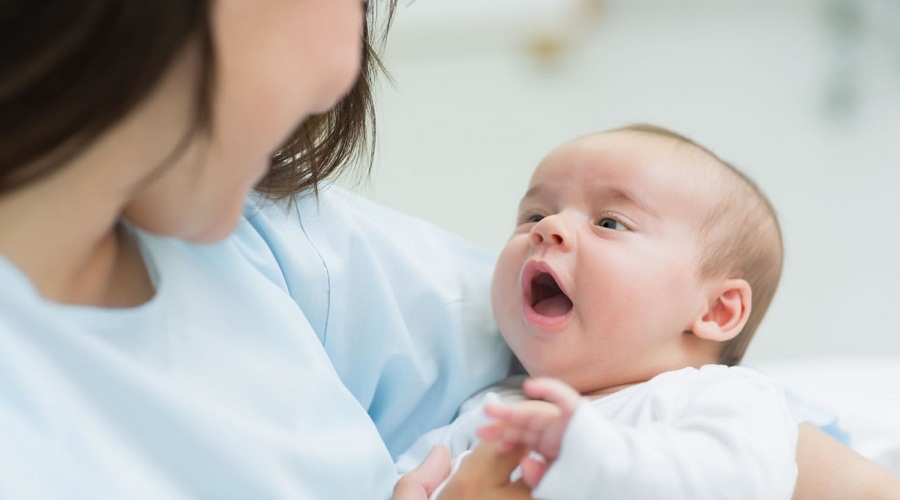What is postpartum care?
The postpartum period refers to the first six weeks after childbirth. This is a joyous time, but it’s also a period of adjustment and healing for mothers. During these weeks, you’ll bond with your baby and you’ll have a post-delivery checkup with your doctor.
Adjusting to motherhood
Adjusting to everyday life after the birth of a baby has its challenges, especially if you’re a new mother. Although it’s important to care for your baby, you also have to take care of yourself.
Most new mothers don't return to work for at least the first six weeks after birth. This allows time to adapt and develop a new normal. Since a baby has to be fed and changed often, you may experience sleepless nights. It can be frustrating and tiresome. The good news is that you'll eventually fall into a routine. In the meantime, here’s what you can do for an easier transition:
- Get plenty of rest. Get as much sleep as possible to cope with tiredness and fatigue. Your baby may wake up every two to three hours for feeding. To make sure you’re getting enough rest, sleep when your baby sleeps.
- Seek help. Don’t hesitate to accept help from family and friends during the postpartum period, as well as after this period. Your body needs to heal, and practical help around the home can help you get much-needed rest. Friends or family can prepare meals, run errands, or help care for other children in the home.
- Eat healthy meals. Maintain a healthy diet to promote healing. Increase your intake of whole grains, vegetables, fruits, and protein. You should also increase your fluid intake, especially if you are breast-feeding.
- Exercise. Your doctor will let you know when it's OK to exercise. The activity should not be strenuous. Try taking a walk near your house. The change of scenery is refreshing and can increase your energy level.
Coping with body changes
Along with emotional changes, you’ll experience body changes after giving birth, such as weight gain. Weight loss doesn't happen overnight, so be patient. Once your doctor says it's OK to exercise, begin with moderate activity a few minutes a day and gradually increase the length and intensity of your workouts. Go for a walk, swim, or join an aerobics class.
Losing weight also involves eating healthy, balanced meals that include fruits, vegetables, and whole grains. Every new mother loses weight at a different pace, so don't compare your weight loss efforts to others. Breast-feeding can help you return to your prepregnancy weight faster because it increases your daily calorie burn.
Talk to your doctor if you have questions or concerns about changes to your body during the postpartum period. Other body changes include:
Breast engorgement
Your breasts will fill with milk a couple of days after birth. This is a normal process, but the swelling (engorgement) can be uncomfortable. Engorgement improves with time. To ease discomfort, apply a warm or cold compress to your breasts. Sore nipples from breast-feeding usually disappear as your body adjusts. Use nipple cream to soothe cracking and pain.
Constipation
Eat high-fiber foods to stimulate bowel activity, and drink plenty of water. Ask your doctor about safe medications. Fiber can also relieve hemorrhoids, as well as over-the-counter creams or sitting in a sitz bath. Drinking water helps ease problems with urinating after birth. If you experience incontinence, Kegel exercises can strengthen your pelvic muscles.
Pelvic floor changes
The area between your rectum and vagina is known as the perineum. It stretches and often tears during birth. Sometimes a doctor will cut this area to help your labor. You can help this area recover after your delivery by doing Kegel exercises, icing the area with cold packs wrapped in towels, and sitting on a pillow.
Sweating
Hormonal changes can cause nighttime sweating after having a baby. Remove blankets from your bed to stay cool.
Uterine pain
A shrinking uterus after giving birth can cause cramping. The pain subsides in time. Ask your doctor about safe pain medications.
Vaginal discharge
Vaginal discharge is typical two to four weeks after giving birth. This is how your body eliminates blood and tissue from your uterus. Wear sanitary napkins until the discharge stops.
Do not use tampons or douche until your four to six week postpartum appointment, or until your doctor approves it. Using these products in the immediate postpartum period may increase your risk of uterine infection. If your vaginal discharge is foul-smelling, notify your doctor. You may continue to have bloody spotting for your first week postpartum, but heavy bleeding is not expected. If you are experiencing heavy vaginal bleeding, such as saturating one sanitary pad within two hours, contact your doctor.
